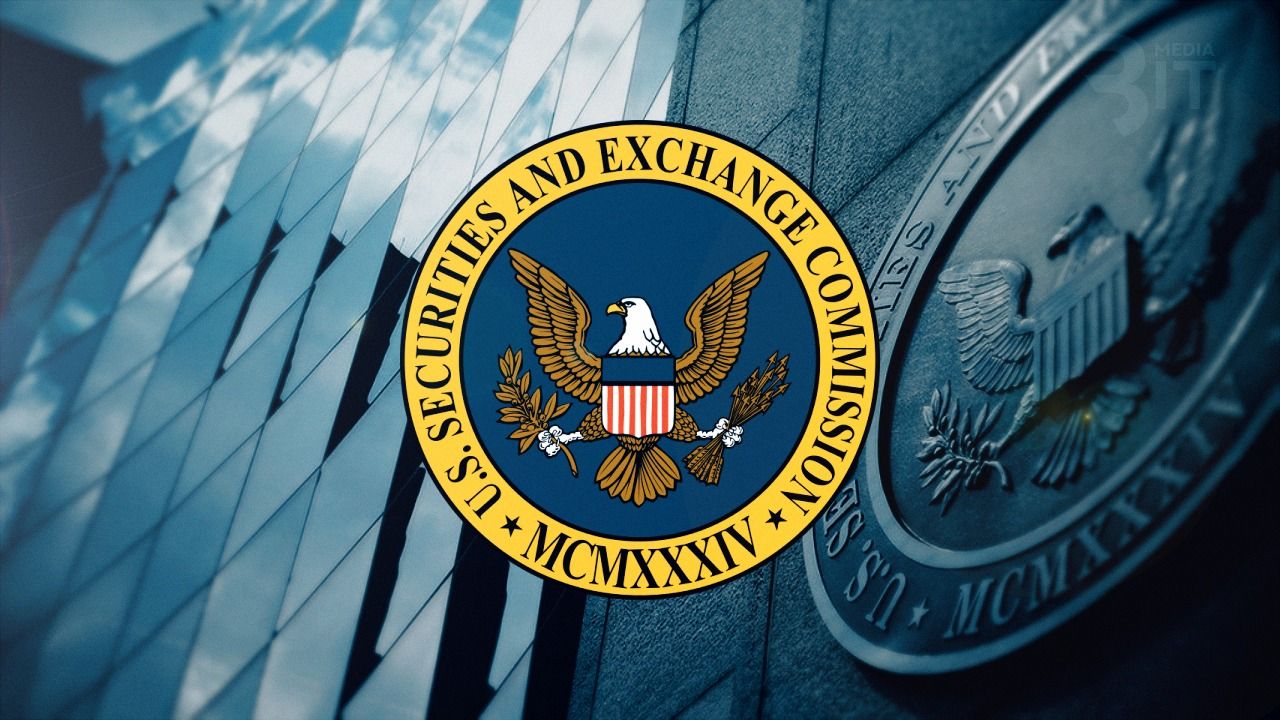The evolving world of virtual assets has prompted authorities to reassess their oversight mechanisms. Amidst this ongoing transformation, several entities engaged in the facilitation of digital transactions find themselves under increasing scrutiny. Regulatory bodies are stepping up their efforts to ensure that these entities adhere to established frameworks, aiming to foster a safe and transparent environment for investors and users alike.
Recent developments highlight the commitment of enforcement agencies to investigate entities operating outside recognized guidelines. As a result, a wave of actions has emerged against those that fail to comply with existing legal standards. This initiative not only underscores the seriousness of the situation but also serves as a vital reminder of the responsibilities accompanying participation in the digital asset space.
In the face of intensified examination, the message is clear: compliance is imperative for sustainability. For those involved in the facilitation of digital transactions, adapting to the evolving regulatory landscape is no longer optional. The future of thriving in this dynamic environment hinges on understanding and embracing the rules of engagement set forth by the governing authorities.
Overview of Recent SEC Actions
In recent months, there has been a notable increase in enforcement activities aimed at ensuring compliance within the digital asset space. This heightened focus reflects a growing commitment to uphold market integrity and protect investors from potential risks associated with trading platforms and financial services that operate outside established legal frameworks.
Authorities have initiated several investigations and proceedings against various entities, emphasizing the necessity for registration and adherence to necessary guidelines. The emphasis on proper disclosure and transparency indicates a shift towards greater accountability in the sector, with regulators keen on mitigating the potential for fraud and abuse.
Additionally, the regulatory bodies have issued public statements and guidelines clarifying their stance on specific practices and products related to digital currencies. These communications serve to educate market participants about compliance expectations and the potential consequences of non-adherence.
As a result, many firms are now reassessing their operations and strategies to align with the evolving legal landscape. This ongoing effort signifies a proactive approach by regulatory organizations to foster a safer environment for all market participants while encouraging innovation within permissible parameters.
Impact on the Crypto Market
The recent actions taken by regulatory authorities have sent ripples through the digital asset landscape. Market participants are closely observing the consequential effects on various segments, leading to a potential shift in investment strategies and market dynamics.
One immediate effect has been increased volatility. Traders are reacting to new developments with a mix of apprehension and opportunity, which has led to substantial price fluctuations. This has caused many investors to reassess their positions within the market.
- Investor Confidence: A decline in trust among retail investors could manifest, affecting participation rates and overall market size.
- Institutional Reactions: Large entities might reconsider their exposure to the digital asset space, reassessing the risk vs. reward ratio amidst heightened scrutiny.
- Innovation Stifling: Startups within the sector may face barriers that could limit new advancements and ideas, thereby slowing down technological progress.
- Compliance Costs: Many businesses could experience increased financial burdens due to the need for enhanced compliance measures, thereby impacting profitability.
As the landscape evolves, market participants must navigate these changes carefully. Adaptation and strategic planning will be crucial for sustaining growth and securing a foothold in this rapidly changing environment.
Key Points of Regulatory Compliance
Adhering to legal guidelines is crucial for organizations operating within the financial technology sector. Understanding the fundamental aspects of compliance is essential for maintaining legitimacy and fostering trust among users. This section outlines critical considerations that entities should take into account to avoid potential pitfalls and ensure a sustainable operational framework.
Essential Compliance Strategies
To build a robust compliance structure, organizations should implement several key strategies:
| Strategy | Description |
|---|---|
| Risk Assessment | Regularly evaluate risks associated with operations to identify vulnerabilities and develop mitigation plans. |
| Customer Due Diligence | Engage in thorough verification processes of users to prevent fraudulent activities and uphold security standards. |
| Transparency | Maintain clear communication with stakeholders regarding policies, fees, and operational practices. |
| Training Programs | Educate staff on regulatory requirements and best practices to ensure everyone is well-informed and vigilant. |
Continuous Monitoring and Adaptation
Compliance is not a one-time effort; it requires ongoing monitoring and adaptation to evolving regulations. Regular audits and updates to compliance protocols are necessary to stay aligned with changes in the legal landscape. Engaging with legal experts and leveraging technology to enhance compliance measures can significantly benefit operations in this dynamic environment.
Responses from Affected Exchanges
In light of recent developments impacting numerous digital asset trading platforms, affected entities have begun to communicate their perspectives and strategies moving forward. These reactions showcase a spectrum of approaches, illustrating the diversity among the industry players facing similar challenges.
Many firms have issued formal statements addressing the current situation, emphasizing their commitment to compliance and customer safety. Here are some common themes observed in their responses:
- Commitment to Compliance: Several organizations have reiterated their dedication to adhering to legal standards, revealing plans to enhance their operational frameworks.
- Transparency Initiatives: A number of platforms have pledged to take steps toward greater transparency, providing users with more clear and accessible information regarding their services.
- User Protection Measures: Concerns for customer security have prompted some companies to introduce additional safeguards, aiming to bolster trust among their user base.
Furthermore, the collective outcry from affected entities has led to calls for clearer guidelines from regulatory bodies. Many believe that a well-defined framework could facilitate better compliance and foster innovation within the industry.
Amid these challenges, the sector is actively engaging with stakeholders to find constructive solutions. Their resilience will be pivotal in shaping the future landscape of digital finance.
Future of Cryptocurrency Regulation
The evolving landscape of digital assets presents both challenges and opportunities as authorities seek to establish a framework for governance. As financial technologies advance, the necessity for clear guidelines becomes increasingly crucial to ensure market integrity, protect investors, and foster innovation. This section explores potential developments in the realm of regulation concerning virtual currencies and associated activities.
Impact on Market Participants
In the absence of robust oversight, participants in the virtual currency arena may experience heightened risks. Regulations can provide a safety net, delivering assurance and promoting trust among users. A more structured environment is likely to attract institutional investors, thus enhancing the legitimacy of the market and potentially leading to wider acceptance among the general public.
Global Harmonization
The international nature of digital currencies requires a concerted effort for uniformity in regulations. Discrepancies between jurisdictions could create inefficiencies and complicate compliance for businesses operating across borders. A coordinated approach may help in establishing best practices and promoting greater transparency in financial transactions.
| Regulatory Focus Area | Potential Outcomes |
|---|---|
| Consumer Protection | Increased confidence among users and reduced fraudulent activities. |
| Market Stability | Greater resilience to market manipulation and excessive volatility. |
| Innovation Promotion | Encouragement of technological advancements while ensuring responsible development. |
| International Collaboration | Streamlined compliance processes and reduced regulatory arbitrage. |
Advice for Investors and Traders
In light of the increasing scrutiny surrounding certain financial entities, it is essential for individuals participating in the digital asset marketplace to adopt a cautious and informed approach. Understanding the evolving landscape can help mitigate risks and enhance investment strategies.
First, always conduct thorough research before engaging with any platform. Investigate the legitimacy of the service, including its operational history, user reviews, and regulatory compliance. Reliable information is crucial for making sound investment decisions.
Second, diversify your investment portfolio to minimize potential losses. Spreading your assets across various sectors can help buffer against the volatility commonly seen in the market. Avoid putting all your financial resources into a single asset or strategy.
Moreover, staying updated on new developments and changes in regulations is vital. Subscribe to reputable news sources and follow industry experts to remain informed about trends and potential risks that may impact your investments.
Additionally, consider utilizing secure storage solutions for your assets. Cold wallets or other protective measures can help safeguard your investments from potential threats and hacking attempts.
Lastly, develop a clear investment plan that outlines your goals and risk tolerance. Having a defined strategy will help guide your decisions and keep you focused, especially during periods of market fluctuations.
Q&A: SEC takes aim crypto platforms unregistered exchanges
What specific actions is the SEC taking against unregistered crypto exchanges?
The SEC is intensifying its regulatory efforts to identify and take action against unregistered cryptocurrency exchanges. This includes filing enforcement actions against platforms that offer trading services without proper registration. The SEC aims to protect investors from potential fraud and ensure that these exchanges comply with federal securities laws. They are particularly focusing on exchanges that facilitate trading of securities without registering with the SEC, as these platforms pose significant risks due to lack of oversight.
How does this crackdown impact individual investors in the cryptocurrency market?
The SEC’s crackdown on unregistered exchanges can have several implications for individual investors. On one hand, the enforcement actions may provide greater protection against frauds and scams, as investors are less likely to engage with unregulated platforms that could disappear overnight. On the other hand, this increased regulation might lead to a reduction in the number of available trading platforms, limiting options for investors and potentially increasing fees on compliant exchanges. Overall, while the intention is to create a safer trading environment, investors may need to adapt to a more regulated market landscape.
What are the consequences for exchanges found to be operating without registration?
Exchanges that are found to be operating without the necessary registration can face significant consequences. The SEC may impose hefty fines, require restitution payments to affected investors, or even seek to shut down these platforms. In addition to financial penalties, operators of unregistered exchanges risk criminal charges if the actions are deemed fraudulent or if they willfully ignore regulatory requirements. Furthermore, the reputational damage from such actions can permanently impact the operators’ ability to enter the market in the future.
Why is the SEC focusing on cryptocurrency exchanges specifically, and what does it mean for the future of the industry?
The SEC’s focus on cryptocurrency exchanges stems from concerns about investor protection and the risk of market manipulation. Many cryptocurrency platforms operate in a regulatory gray area, and the absence of oversight can make investors vulnerable to fraud. By targeting these exchanges, the SEC aims to bring greater legitimacy to the cryptocurrency market, ensuring that only compliant entities can operate. This could lead to increased investor confidence and more institutional participation in the sector. However, it may also mean that many smaller or less compliant platforms struggle to survive in a more regulated environment, potentially transforming the landscape of the cryptocurrency industry in the long run.
What actions has the Securities and Exchange Commission (SEC) taken against unregistered crypto trading platforms?
The SEC has charged several crypto trading platforms with operating as unregistered securities exchanges. These platforms have been accused of facilitating the offer and sale of securities without proper registration, which violates the Securities Exchange Act.
How does the SEC classify certain crypto assets under U.S. law?
The SEC classifies many crypto assets as unregistered securities, particularly when they are involved in an initial coin offering or when the sale of securities does not comply with the Securities Act of 1933. The agency emphasizes that if a particular transaction involving crypto assets constitutes an offer and sale of securities, it must adhere to regulatory guidelines.
What are the implications of the SEC’s enforcement actions for the crypto industry?
The SEC’s enforcement actions signal increased scrutiny of the crypto industry, particularly regarding compliance with securities laws. The SEC chairman Gary Gensler has indicated that the majority of crypto tokens may be classified as unregistered digital asset securities, and market participants must either register with the SEC or ensure compliance to avoid potential legal repercussions.
How does the SEC’s enforcement priority impact the operation of crypto trading platforms?
The SEC has made it a priority to police crypto trading platforms, particularly those operating as unregistered exchanges. This enforcement effort aims to hold platforms accountable for failing to register and comply with Section 5 of the Exchange Act, which governs the sale of securities. Failure to comply could lead to significant legal consequences.
What does the SEC’s focus on unregistered crypto exchanges reveal about its regulatory approach?
The SEC’s focus on unregistered crypto exchanges reflects its commitment to ensuring that all crypto asset trading platforms operate within the legal framework established by the Securities Exchange Act of 1934. The agency is likely to pursue enforcement actions against platforms that do not comply, emphasizing the need for transparency and consumer protection in the rapidly evolving crypto industry.




